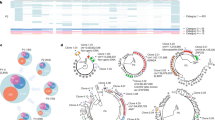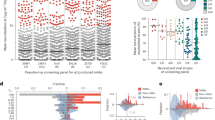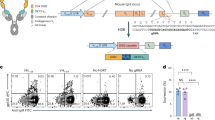Abstract
Peptide stretches within HIV-1 proteins display homology to over 50 components from all compartments of the human immune defence network. The homologous peptides are in most cases immunogenic, suggesting that antibodies to HIV-1 proteins could mount an autoimmune attack against multiple components of the immune system itself. HIV-1 proteins are also homologous to autoantigens in Alzheimer's disease, chronic obstructive pulmonary disorder, multiple sclerosis, Myasthenia Gravis, Pemphigus Vulgaris, Sjogrens syndrome and systemic Lupus Erythematosus, all of which have been associated with HIV-1 infection. This mimicry suggests that HIV-1/AIDS has a major autoimmune component and that HIV-1 antibodies could selectively target the immune system and autoantigens in other autoimmune disorders. This could radically change our conception of how HIV-1 acts, and perhaps lead to novel therapeutic strategies, which, counter intuitively might even involve the use of immunosuppressants in the early stages of the disease. Autoantigens from the human autoimmune diseases mentioned above also align with peptides from other viruses implicated as risk factors in each disease. Mutant peptides from Huntington's disease and other polyglutamine disorders, and from cystic fibrosis also align with common viruses. The London APP717 V&x2192;I mutant in Familial Alzheimer's disease converts the surrounding peptide to matches with Rhinoviruses causing the common cold and to the Norovirus responsible for vomiting sickness. Viral mimicry related autoimmunity may thus play a role in many autoimmune and even human genetic disorders. It is possible that this is a near universal phenomenon, reflecting the idea that viruses are responsible for the origin of higher forms of life, leaving behind a deadly legacy of viral-derived human proteins with homology to antigenic proteins in the current virome that may be responsible for most of our ills.
Similar content being viewed by others
Article PDF
Author information
Authors and Affiliations
Corresponding author
Rights and permissions
About this article
Cite this article
Carter, C. Extensive Viral mimicry of human proteins in AIDS, autoimmune disorders, late-onset and familial Alzheimer's disease and other genetic diseases. Nat Prec (2010). https://doi.org/10.1038/npre.2010.4582.1
Received:
Accepted:
Published:
DOI: https://doi.org/10.1038/npre.2010.4582.1



